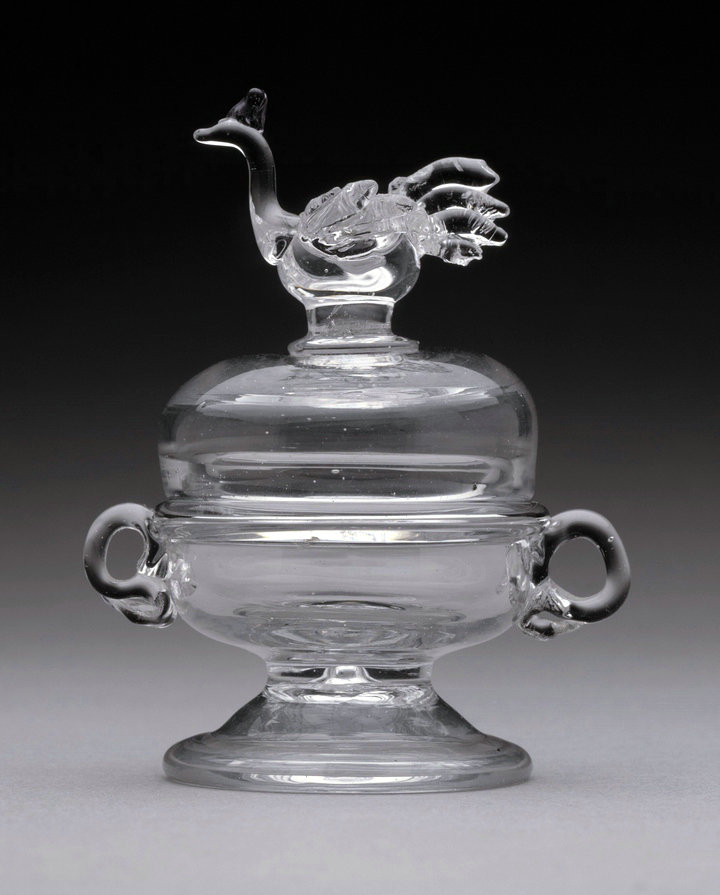John Frederick Amelung


John Frederick Amelung (1741 – 1798), was a German glass artist active in Maryland.
He was born in Bremen and moved to Maryland where he became founder of the New Bremen Glass manufactory. He produced decorative glass similar to Stiegel glass from 1784 up to about 1795.
German glassmaker John Frederick Amelung opened a glasshouse in western Maryland in 1787, responding to America’s desire for economic independence from Britain and the need to develop domestic manufactures. Within a few years, he was producing a variety of window glass, bottles, and tableware at his New Bremen factory. Some of Amelung’s products feature elaborate engraved decoration in the Germanic style. This example is signed by the factory and is the earliest dated example known. Engraved with the arms of Bremen, Germany, and the inscription, “Old Bremen Success and the New Progress / New Bremen Glassmanufactory 1788 / North America State of Maryland,” this goblet, or pokal, was found in Germany and may have been presented by Amelung to his German investors as a triumphant toast to his successful American glass factory.
Owing to technical challenges and the expense of glassmaking, most window and table glass was imported from England. In 1784, however, Amelung, German entrepreneur and glassmaker, arrived in Maryland with skilled workmen, technical expertise, and financial backing from merchants in Bremen, Germany. For the next decade, Amelung’s New Bremen factory–perhaps the largest industrial enterprise in the country–produced such beautiful and ambitious glass objects as this goblet made for a Pennsylvania church. Despite its artistic success, New Bremen was forced into bankruptcy, undermined by the vast influx of inexpensive, English glass.
Amelung glass, American glass produced from 1784 to about 1795 by John Frederick Amelung, a native of Bremen in Germany. Financed by German and American promoters, Amelung founded the New Bremen Glassmanufactory near Frederick, Md., U.S., and attempted to establish a self-sufficient community, importing glassworkers and other craftsmen from Germany. The enterprise was encouraged by such men as George Washington, Thomas Jefferson, and Benjamin Franklin, and in 1789 a duty on window and other glass, the first protective tariff passed under the new U.S. Constitution, was proposed. Amelung’s ambitious project failed to prosper, however, and in 1790 he petitioned Congress for help. After debating whether such a loan was within its constitutional powers and whether it was advisable to set such a precedent, Congress defeated the measure. A loan request for expansion was denied in 1790. The New Bremen industry subsequently failed.
Only a few authenticated pieces of Amelung glass survive, most of them presentation pieces decorated with restrained engraving. Among them are a service given to Washington, as well as the Bremen pokal, a covered goblet sent to Amelung’s German backers.
He died in Maryland in 1798.